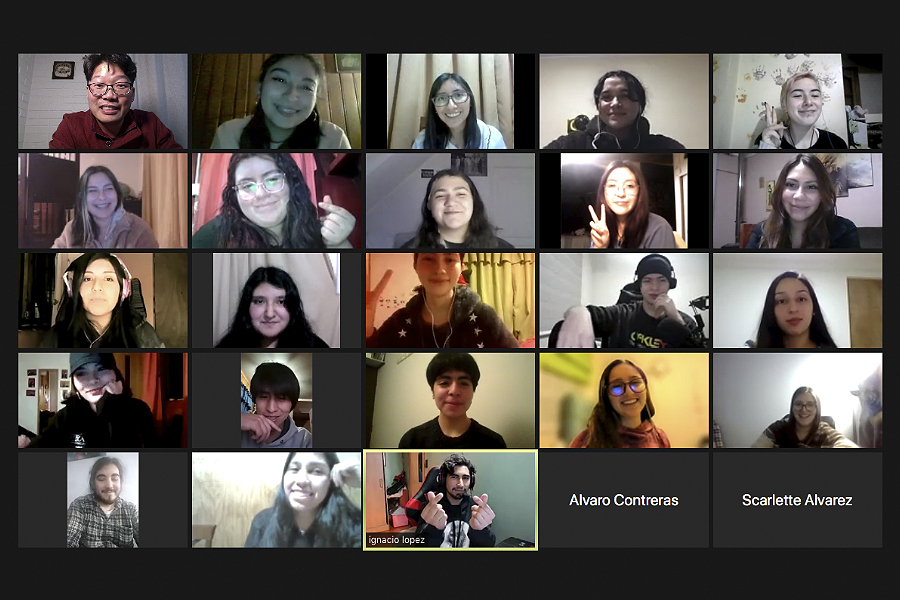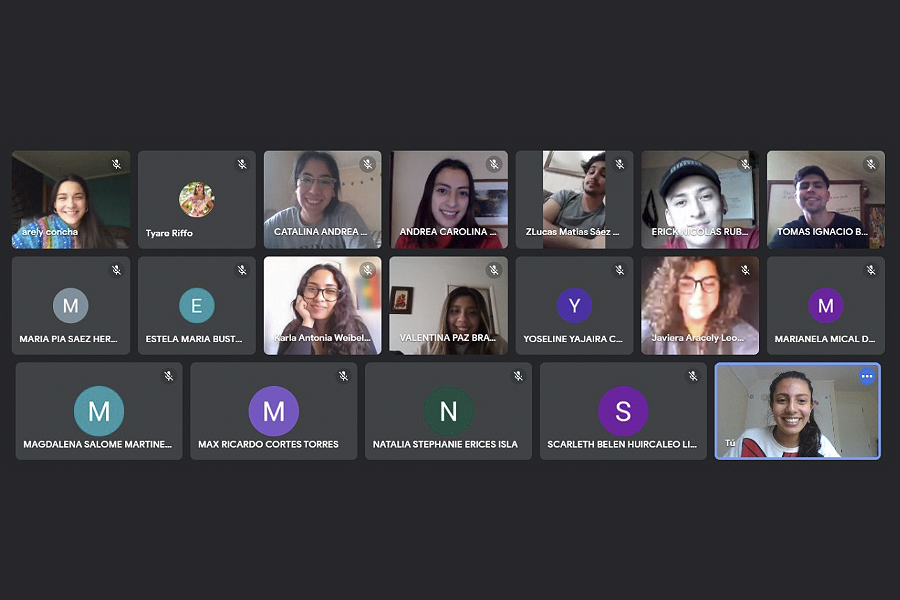|
In addition to French, German, Italian and Chinese courses, the Language Coordination Center of the Universidad de La Frontera will also offer these two languages. |
There are several reasons because of which learning a new language contributes in a positive way to the training process of the students. It does not only allow them to get to know new cultures, but also breaks down borders, offers new opportunities and experiences, and gives them new tools to confront current social issues easier and to react more appropriately to them. Therefore, the Language Coordination Center (CODI), in cooperation with the Office for Comprehensive Training and Employability of the Vice-Rectorate for Undergraduate Affairs, adds Korean and Portuguese courses, as well as a German (level 2) course to the offer for the second semester of 2021. The inscriptions went very well, what shows that the students really appreciate this new offer. The coordinator of CODI, Felipe Opazo, emphasized the fact that the Universidad de La Frontera (UFRO) maintains a strong commitment with the internationalization of its students through the implementation of different strategies in order to contribute to the students’ training to become global citizens. “One of our strategies is to strengthen the field of elective language courses, since they allow the students more closeness to the world, to get to know new realities and to improve their critical thinking. For the Language Coordination Center, it is very important to know the students’ preferences and interests. Therefore, we applied an online survey on our Social Media Accounts, in order to know which languages would be interesting for them to learn. That is why we added Korean and Portuguese to our offer. We hope to be able to keep improving over the next semesters,” he added. During the first semester of 2021, 202 students joined the French, German, Italian and Chinese courses, in addition to the foreign students who participated remotely from different parts of the world in UFROs Spanish language courses. This semester, the number of participants is even higher. There is no doubt that the use of technology has been very important in order to continue with these courses. CODI has always implemented this kind of resources and actions in the teaching and learning process, in order to overcome the challenges of learning a new language, always in line with the internationalization process of UFRO. The Korean language teacher Sung Young Yun emphasizes that the possibility to learn Korean gives the students the chance to get to know and speak this language and to get access to different exchange programs and scholarships to study in Korea, besides of getting to know the Korean culture. “I am positively surprised regarding the number of participants who signed up for each of the courses and it is great to see that the students are very enthusiastic,” he says. The Portuguese language teacher Sofia Penido Esparza explains that “the students are highly involved in the development of the course. To learn a new language means to learn to communicate in a new way, what is also important for their training process in terms of building relationships and being able to network”. Erick Rubilar Vidal is a student of the Faculty of Engineering and Science. “What motivates me is that learning a new language – Portuguese in my case – gives me the possibility to get to know the culture and to easily communicate, whether for private trips or work opportunities,” he says. According to him, the course allows him to improve his training, because it gives him the basic knowledge of a language, facilitates the communication and adaptation abroad or in case of attending seminars or congresses where he needs the Portuguese language, as well as in formal or informal meetings with people who speak that language. Written by: Rocío Yáñez Álvarez |






